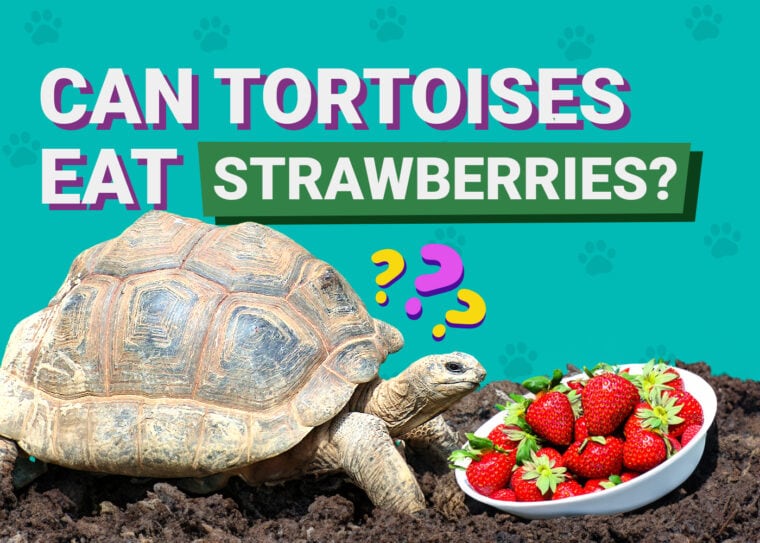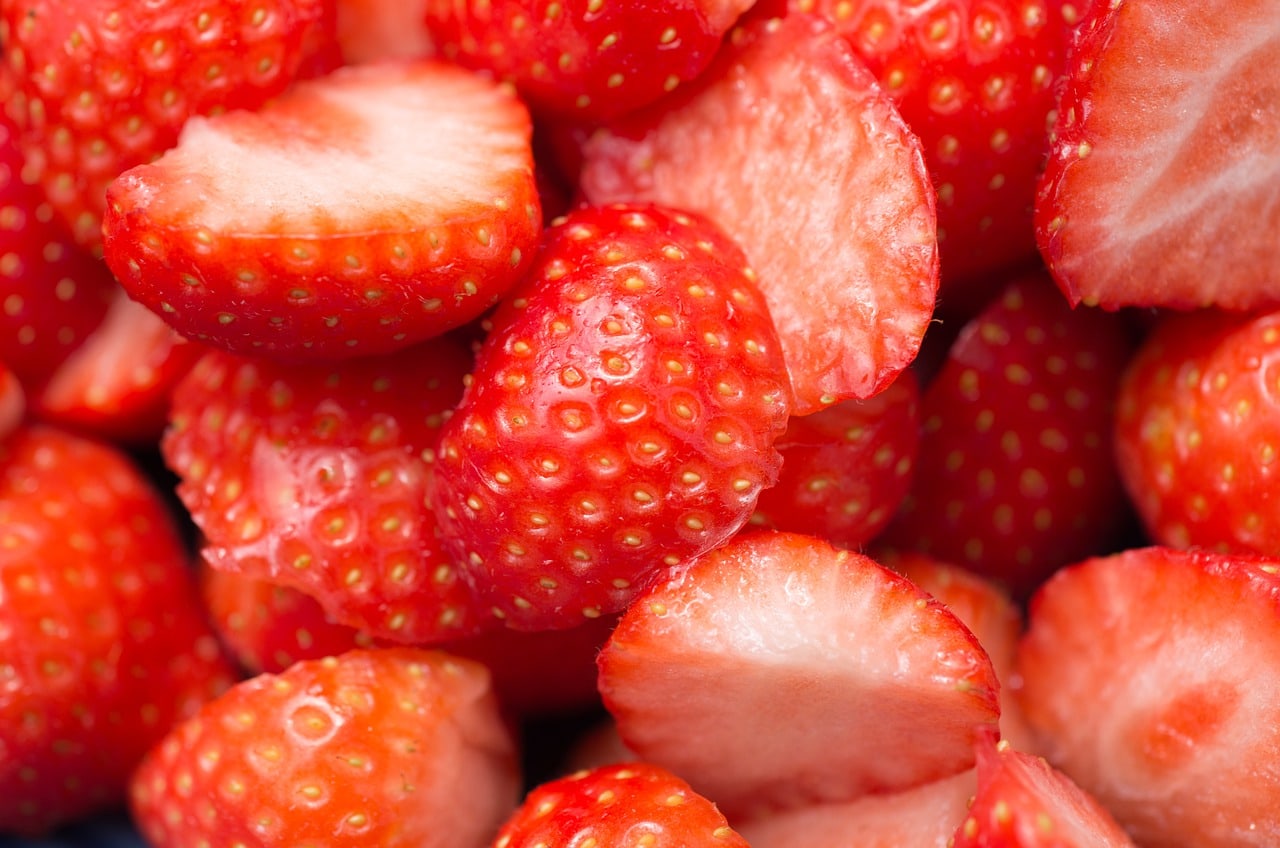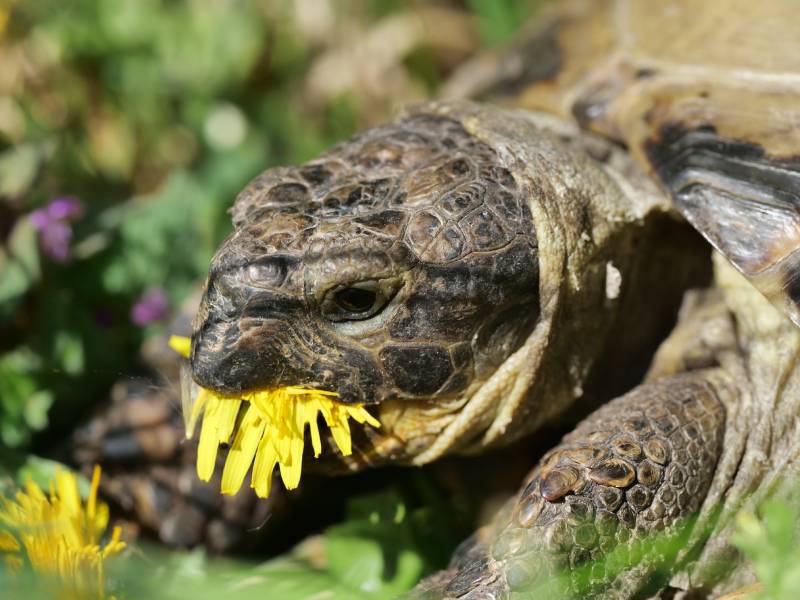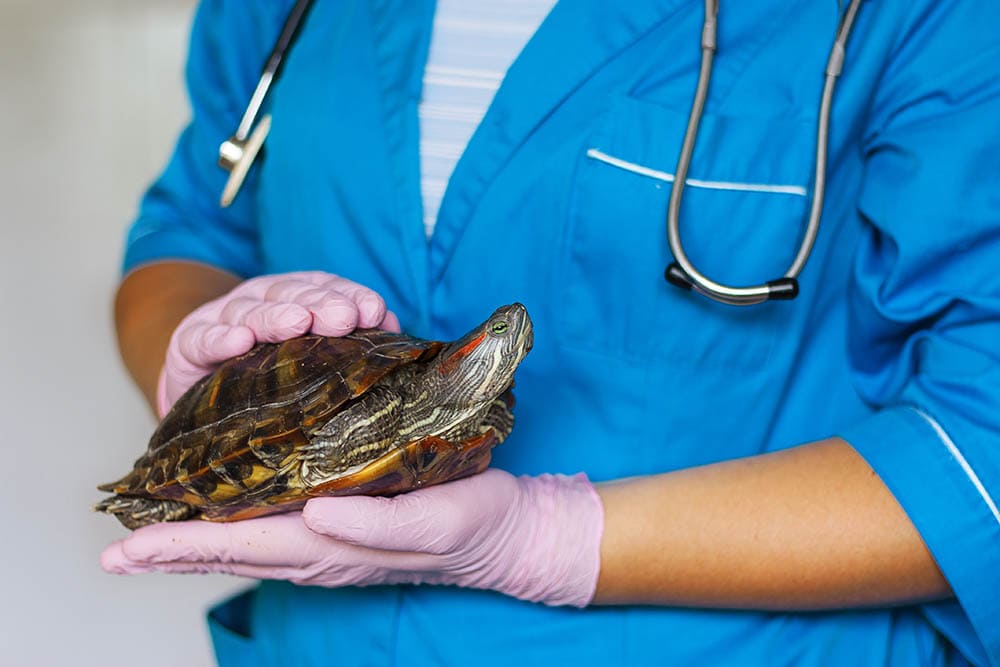
Tortoises are herbivores and, with very few exceptions, only eat plant-based foods. This includes grasses, hay, and leafy greens, but can also include a variety of other vegetables and the occasional fruit. Knowing that fruit is among the food options for your tortoise, you might wonder: can tortoises eat strawberries? The answer is yes; tortoises can eat strawberries.
Of course, moderation is essential when feeding your pet sugary fruits. While fruits can be a good part of your tortoise’s diet, they should only make up 5% or less of your pet’s regular meals.
What Is a Strawberry’s Nutritional Value?
Strawberries are high in sugar and should only be fed occasionally to tortoises. However, strawberries can also provide nutritional benefits for your tortoise when fed as a treat. Examples of what strawberries can provide your tortoise include:

Dietary Needs Vary Between Species
There are many species of tortoises in the world that have unique dietary habits and needs.
In the wild, tortoises find sustenance by encountering food close to the ground. This can include leafy plants or fruits that have fallen on the ground, but this will vary depending on the region.
For instance, species in tropical rainforests often come across fallen fruits, whereas tortoises in grassland savannas or deserts are adapted to eating fibrous plant matter. Therefore, the dietary proportions of your captive tortoise must change depending on the species, so that you can more closely mimic their natural diet.
If you are unsure of your pet’s species or how to best provide for their unique needs, consult your vet or reptile specialist to learn more about caring for your tortoise.
The Importance of Feeding Your Tortoise a Balanced Diet

Your tortoise’s diet has a significant role in determining their health. If they receive an appropriate, healthy diet, they are more likely to live a healthy life. However, if their nutritional needs are not met, they may experience serious health consequences, such as metabolic bone disease.
Metabolic bone disease occurs most often when a reptile lacks calcium or vitamin D, but it can also occur due to high phosphorus levels. The best way to prevent metabolic bone disease is to carefully monitor your tortoise’s diet and ensure they receive foods that are rich in calcium, low in phosphorus, and receive sufficient UVB light. Berries, including strawberries, are one high-calcium food that may help boost your pet’s levels, but being high in sugar, they should not be relied upon too heavily. Other foods you can feed your tortoise to give them more calcium include kale, cabbage, okra, Bok choy, squash, and alfalfa hay.
The best way to keep your tortoise happy and healthy is to try to mimic the diet they would consume in the wild, and in this respect, variety is key. By providing a range of different foods, we can maximize nutritional value without over-relying on a single food source, thus avoiding any potential issues associated with any one food type.
For example, kale is full of vitamins A, C, and K, fiber, calcium and protein, but if fed exclusively, can cause issues like kidney stones or hypothyroidism. As part of a tortoise’s diet, however, it is a healthy and nutritious inclusion. Just as strawberries are a great sweet treat to help you bond with your shelled friend, whilst at the same time providing some beneficial nutrients, feeding them too much will lead to gastrointestinal disorders, nutrient deficiencies and obesity.
Conclusion
Strawberries can be a valuable part of your tortoise’s diet as long as they are fed in moderation. Strawberries should not be the only fruit you feed your tortoise since feeding a variety is vital to a healthy and well-balanced diet. Additionally, no more than 5% of your pet’s diet should consist of fruit, so strawberries should be fed sparingly. Be aware that if you have strawberry plants in your garden, your tortoise will make a beeline for them if you let them free range, so be sure to protect them with a barrier, or you’ll end up with no strawberries and a tortoise with diarrhea!
Featured Image Credit: 13Monik69, Pixabay








